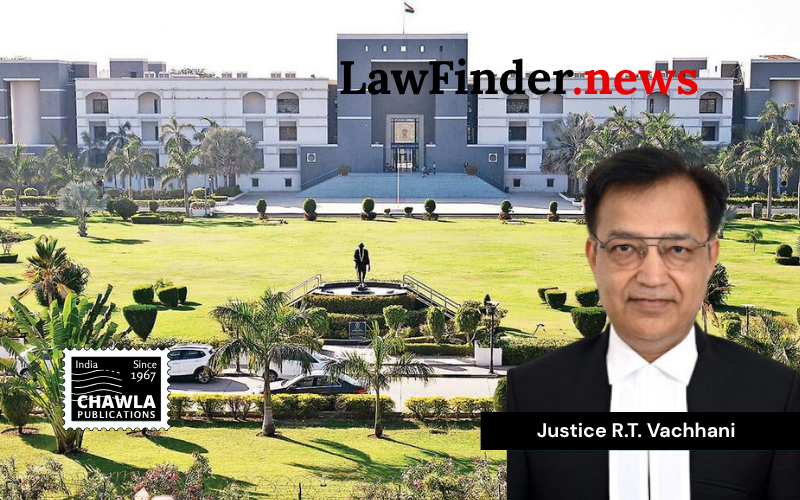Court affirms prima facie evidence against Deep Rajendrakumar Shah, dismisses revision application challenging charge framing.
In a significant ruling, the Gujarat High Court has upheld the decision of the Special Judge in Junagadh to deny the discharge application of Deep Rajendrakumar Shah in a high-profile corruption case. The case, revolving around allegations of misuse of power within the Cyber Crime Cell of Junagadh, has been a focal point of legal scrutiny since charges were filed against Shah and his co-accused.
The judgment, delivered by Justice R. T. Vachhani, underscores the limited scope of judicial intervention at the stage of framing charges, emphasizing that the court's role is not to conduct a "mini trial" but to assess whether there is a prima facie case to proceed against the accused. The court noted that the materials presented, including witness statements and documentations, sufficiently establish grounds for presuming Shah's involvement in the alleged offences.
The case originated from a complaint by Mr. Kartik Bhanderi, who alleged that his bank account was unlawfully frozen by the Cyber Crime Cell, and subsequently faced a demand for Rs. 25 lakhs to have the account unfrozen. The investigation revealed that Shah and his co-accused allegedly abused their positions to freeze multiple accounts, misusing confidential information to further their illicit activities.
In his submissions, Shah's advocate contended that the evidence against his client was inadequate to justify a trial, arguing that the lower court erred in assessing the material as sufficient for proceeding. However, the High Court found these arguments unpersuasive, reiterating the principle that detailed evaluation of evidence is impermissible at the discharge stage.
The judgment also addressed the procedural constraints associated with the exercise of revisional jurisdiction under Sections 397 and 401 of the Code of Criminal Procedure, noting that such powers are intended to correct manifest errors of law or procedure, not to reevaluate evidence.
Responding to the dismissal of the revision application, the State argued that the evidence, including statements from witnesses who detailed Shah's involvement in compiling sensitive financial information, was compelling. The court concurred, finding that these testimonies, coupled with the documentary evidence, formed a substantial basis for the charges under sections of the IPC and the Prevention of Corruption Act.
The court's decision effectively clears the path for the trial to proceed, affirming the prosecutorial stance that Shah's actions warrant judicial examination through the trial process. The denial of interim relief further underscores the court's commitment to ensuring that the trial progresses without undue delay.
The ruling is expected to have broader implications for how discharge applications are handled in corruption cases, reinforcing judicial adherence to procedural norms and the importance of upholding public accountability in cases involving misuse of official positions.
Bottom Line:
The scope of discharge under Section 239 of the Code of Criminal Procedure, 1973 is limited. The Court is not expected to conduct a "mini trial" or go into the merits of the evidence at the stage of framing charges. The test is whether the materials, if unrebutted, make out a prima facie case to proceed against the accused.
Statutory provision(s): Section 239 of the Code of Criminal Procedure, 1973; Sections 167, 465, 467, 471, 385, 389, 114, 120-B of the Indian Penal Code; Sections 7 and 12 of the Prevention of Corruption Act, 1988; Sections 397 and 401 of the Code of Criminal Procedure, 1973; Section 438 read with Section 442 of the Bharatiya Nagarik Suraksha Sanhita, 2023.
Deep Rajendrakumar Shah v. State of Gujarat, (Gujarat) : Law Finder Doc Id # 2788748




